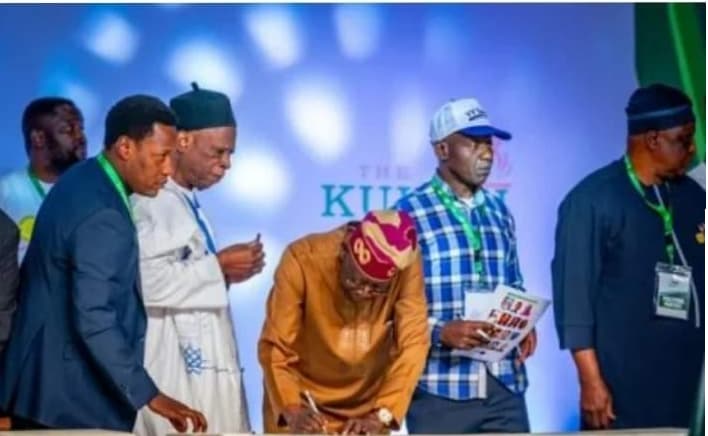THE Presidency has reacted to the claim by the Bishop of the Catholic Diocese of Sokoto, Matthew Hassan Kukah, that President Bola Ahmed Tinubu did not sign the 2023 peace accords ahead of the year election.
Mr Bayo Onanuga, Special Adviser to the President on Information and Strategy, insisted that the then-candidate Tinubu signed both accords, which were designed to ensure peaceful and credible elections.
Kukah, one of the conveners of the National Peace Committee headed by former Head of State General Abdulsalami Abubakar, made this known on Sunday in Benin City during the Edo Election Security Town Hall.
According to the clergyman, the committee can’t force any presidential candidate to sign the peace pact, which has become an electoral ritual in the last decade.
He said, “The National Peace Committee, what we do is not in the Electoral Act, it’s not law; it’s moral. You can’t compel people to fall in love or love their neighbour.
“If you go back to the 2019 election, the presidential candidate for the PDP, Alhaji Atiku Abubakar, was not there to sign the Peace Accord. And, of course, the opposition went to town, which is what it ought to be, and the next day, he (Atiku) turned up to sign.
“What is also very interesting is that the current president, when he was a presidential candidate, did not sign; it wasn’t our fault that the political opposition didn’t take advantage of it.”
However, Mr Onanuga, in his verified X (formerly Twitter) account, rebuffed the claim. According to him: “The first accord, committing the candidates to a free and credible election, was signed on 29 September 2022, with Vice President Kashim Shettima representing Tinubu,”
He further clarified that the second accord, aimed at ensuring candidates accepted the election outcomes, was signed by Tinubu himself on 23 February 2023.
This clarification reinforces the President’s commitment to peaceful democratic processes during the 2023 election season.
Eighteen-Eleven Media


